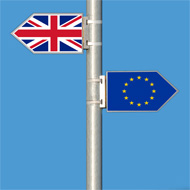
Animal welfare and non-British professionals at centre of appeal
Amidst Brexit negotiations, the British Veterinary Association (BVA) is appealing to the UK government to maintain standards in all areas of animal welfare, environmental protection and the veterinary industry.
As the UK plans to leave the European Union, the BVA has urged the government to utilise opportunities to improve animal health, welfare and ethics, where possible.
The BVA believes that post-Brexit Britain should stress high animal welfare and food safety standards as a competitive advantage. With regards to the workforce, BVA also emphasises the importance of working rights for non-British EU veterinary surgeons and veterinary nurses working in the UK and vice versa, for British professionals working in the EU.
BVA president Gudrun Ravetz said: “From the outset, one of BVA’s key priorities has been seeking reassurance for the many EU vets and vet nurses who are making an invaluable contribution in the UK across many areas of animal health and welfare, and particularly in the area of public health. We are maintaining that strong focus on our colleagues as well as highlighting other areas that may be affected by Brexit.
“We will ensure the voice of the veterinary profession is heard during any negotiations and discussions, to secure the best possible outcomes for our profession and for animal health and welfare in the UK.”
Chair of BVA’s Brexit Working Group and former UK Deputy Chief Veterinary Officer, Alick Simmons, put forward the following key areas for consideration:
· Veterinary work force issues
· Animal health
· Animal welfare
· Food hygiene and safety
· Veterinary medicines
· Research and development
In addition to this, BVA advise public money previously spent on the EU Common Agricultural Policy should be redirected to fund and encourage public services, including animal health and welfare, disease surveillance, biodiversity and environmental stewardship.



 FIVP has shared a survey, inviting those working in independent practice to share their views on the CMA's proposed remedies.
FIVP has shared a survey, inviting those working in independent practice to share their views on the CMA's proposed remedies.